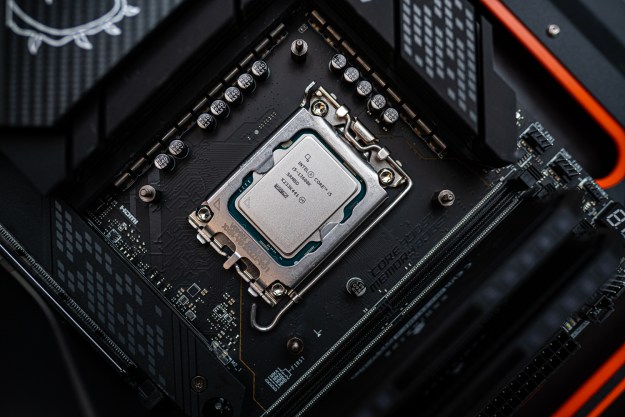
If Intel‘s Core Duo technology quickened your pulse and the company’s quad-core offerings positively got your blood rolling…then the company’s Tera-scale Computing Research Program has developed a chip which is going to send you to the doctor for some industrial-strength blood pressure medication.
Intel has announced its first silicon tera-scale research prototype, which the company claims is the first programable chip to deliver more than one trillion floating point operations per second (that’s one teraflop) while consuming less power than many of today’s home appliances. The research chip implements 80 simple processor cores, each of which contain two programmable floating point engines, on a design no larger than a typical fingernail. Each core also contains a 5-port message router connected in a2D network the implements inter-core message passing. Scaled up, this sort of core intermesh network could be staled up to even larger multicore setups, enabling even better processor performance.
Although the chip is a prototype and doesn’t represent a product the company plans to bring to market, it could be a glimpse of technologies lying five to ten years down the road of processor development. Running at 3.16 GHz, the chip managed 1.01 teraflops and consumed just 62 Watts of power, which is comparable with processors used in today’s desktop systems; cranked to 5.7 GHz, the chip managed 1.81 teraflops and consumed 265 Watts. The processor also implements power management features which enable individual cores to be put to sleep based on the performance requirements of a particular application.
Editors' Recommendations
- Gamers are reportedly returning Intel Core i9 CPUs in droves
- Intel and Microsoft just announced a huge collaboration
- The first Core Ultra handheld gaming PC is already coming
- Intel’s new Core Ultra chips needed to be more than this
- Confused about Core Ultra? We were too, so we asked Intel about it


